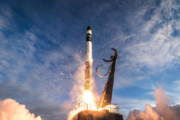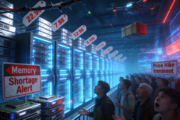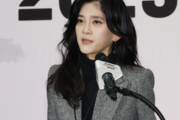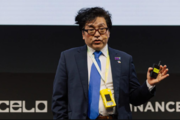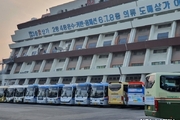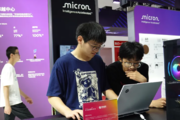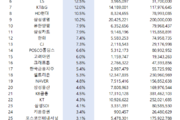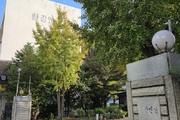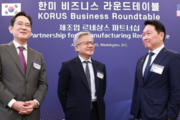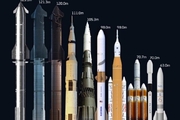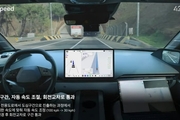
[News Space=Reporter seungwon lee] Estige24 (CEO Kim Il-soo), which operates the beauty and healthcare brand Cellreturn, is experiencing a serious liquidity crisis amid rapidly declining sales and widening deficits. It is pointed out that rapid restructuring and risk management are essential to maintain the possibility of survival as a going concern.
Currently, Estige24's major shareholders are CEO Kim Il-soo with 86.64%, CEO Kim's spouse Kim Na-yeon with 10.00%, Kim Sol-hyun with 0.01%, and Celltrion Holdings with 3.35%.
According to the audit report of the Financial Supervisory Service's electronic disclosure system on the 9th, Estige24's sales in 2024 will decrease by approximately 67.7% to KRW 4.1 billion compared to KRW 12.7 billion in the previous year (2023).
The operating loss also increased by almost two times. It increased by 82.7% from 2.6 billion won the previous year to 4.75 billion won last year. The net loss for the period increased by about three times. It expanded by 178% from 2.29 billion won the previous year to 6.37 billion won, further worsening the deterioration of profitability.
The debt ratio remained at approximately 180%, the same as the previous year, and total debt exceeded total capital (approximately KRW 30.8 billion) at approximately KRW 55.4 billion.
Current liabilities amount to 54.1 billion won, with short-term borrowings (52.2 billion won) being the main component, and non-current liabilities amount to approximately 130 million won. In other words, the liquidity shortage is serious.
Total assets decreased by approximately 7.4% from the previous year's 93.1 billion won to 86.2 billion won. Current assets amounted to approximately 12.9 billion won, with cash assets amounting to only approximately 130 million won, further exacerbating liquidity pressures.
Estige24 has a total of 14.6 billion won in accounts receivable, of which approximately 12.1 billion won has been set aside as a bad debt reserve. This is because the company has assessed the possibility of collecting the accounts receivable as low, and the bad debt reserve is deducted from the accounts receivable balance in the financial statements.
In other words, the fact that an amount equivalent to approximately 82.9% of accounts receivable was set aside as allowance for bad debts shows that the possibility of recovery is low. This is to accurately reflect the financial soundness of the company and prepare for potential losses.
Non-current assets amount to KRW 73.4 billion, and land and buildings are the main components.
In addition, the book value of the land owned by the company at 237 Namdongseo-ro, Namdong-gu, Incheon Metropolitan City is approximately KRW 52.4 billion, but the assessed value is approximately KRW 22.3 billion, so the assessed value ratio to the book value is approximately 46.3%, showing a large difference in evaluation.
A high book value may appear positive on the financial statements by expanding the size of the company's assets. However, when actually sold, it may be traded based on the publicly announced price or may require additional valuation procedures, which may result in difficulties in securing liquidity.
Celltrion Holdings has about 700 million won in short-term loans. In addition, the payment guarantee amount is about 28.5 billion won. This refers to the amount of money that the company received as a guarantee from a special related party to secure credit in transactions with financial institutions or other creditors. This implies that the company may have to assume the burden in the event that the special related party fails to fulfill its guarantee obligation.
In other words, short-term loans and payment guarantees affect the company's asset and liability structure, and if performance liability occurs, the company's liquidity pressure may worsen. Therefore, it is necessary to reduce dependence on affiliates and strengthen transaction transparency.
Currently, Estige24 has a net loss of approximately KRW 6.37 billion, and its retained earnings are in the red at -KRW 10.7 billion. Naturally, since its retained earnings are in the red, it has no room to pay dividends.
Selling and administrative expenses totaled 7.1 billion won, of which 670 million won was for salary expenses, 930 million won for retirement benefits, 1.1 billion won for commissions, and 1.17 billion won for advertising and publicity expenses.
Breaking down the sales items, product sales were 1.07 billion won, merchandise sales 1.26 billion won, service sales 17.58 million won, other sales 50 million won, and rental sales 1.72 billion won.
A corporate finance analysis expert pointed out that, “Estige24 is experiencing a serious liquidity crisis amidst rapidly declining sales and widening deficits. It needs to urgently restore its financial soundness through additional financing using tangible assets such as land assets and business diversification,” and that “rapid restructuring and risk management are essential to maintain the possibility of its survival as a going concern.”
In 2018, when it was at its peak, Estige24's sales reached 65.1 billion won and operating profit reached 20.3 billion won, resulting in an operating profit ratio of a whopping 31.2%, and its operating profit growth rate soared to 1235.3% year-on-year. (2017 sales and operating profit were 3.8 billion won/1.5 billion won).
In 2020, Celltrion selected actors Lee Min-ho, Park Seo-joon, and Kang So-ra as its advertising models and even produced a 'blockbuster advertising video', which became a hot topic on social media channels.
The downfall of Celltrion, which had been doing well, began in 2020.
Celltrion's sales decreased by about 90% from 128.5 billion won in 2019 to 14.9 billion won in 2020. Operating profit also turned into a deficit from 39.7 billion won in 2019 to an operating loss of 12.9 billion won in 2020. In just one year, sales decreased by more than 100 billion won and operating profit decreased by more than 50 billion won.
The reason is that due to the controversy over stability, distrust in the Cellreturn LED mask market itself has grown, and in the case of the Cellreturn device, there have been many side effects, and consumer complaints have been frequently reported, which has had a negative impact on sales. In particular, the main symptoms of side effects were reported to be itching, erythema, acne, retinal damage, and even blindness. A cafe for victims who suffered side effects after using Cellreturn has also been opened on Naver.
Moreover, the issue of false advertising was raised at a time when the popularity of LED masks was skyrocketing. At the time, the Ministry of Food and Drug Safety announced that "even though it was a general commercial LED mask that was not approved as a medical device and had no proven efficacy or effect, it advertised content that could be mistaken for a medical device, such as 'wrinkle improvement,' 'facial lifting,' 'blemish and acne relief,' and 'skin disease treatment and relief. '"
An industry insider explained, "Sales plummeted after the exaggerated advertising announced by the Ministry of Food and Drug Safety in 2019," and "Sales of LED masks themselves in the home beauty market plummeted to the point where sales volume itself was not even counted." At the time, major domestic LED masks included Prael (LG Electronics), Elenic (Korea Fujifilm), and Opera Milux (GTG Wellness).




